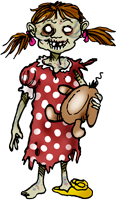Reading can be a lot of fun and all reading helps us learn, but when it comes to academic reading in school there is a special kind of reading that you need to learn and master- Critical Reading. This is reading with the intent of understanding the passage and then answering questions or discussing it when you are done. This is reading with the goal of understanding supporting details used in the passage, noting the main idea of the piece, being able to make inferences about what you read, recognizing the purpose and attitude of the author, and being able to distinguish fact from opinion. Here are some thing to remember about each of these goals:
SUPPORTING DETAILS: If the question is asking you to identify a supporting detail, the answer can be found in the passage. The wording may be different or it might be in there word for word, but regardless of how it is phrased, the idea will be the same and can be found in the passage. Here are some common ways this question gets asked:
● The passage states ....
● The author says ....
● According to what was read....
MAIN IDEA: When the question wants you to focus in on the main idea, you're looking for one idea or statement that summarizes the entire passage, not just one or two of the examples or supporting points. The main idea could be clearly stated in one of the opening sentences or be implied throughout the passage by looking at the details and supporting points. Here are some common ways this question gets asked:
● The main idea for this paragraph....
● The central point of the passage....
● A possible title for what was just read....
● The author's primary point...
INFERENCE: When you come across the questions which ask you to make an inference, the answer is not going to be neatly stated in the passage or given in the opening or closing sentences. You're going to have to take everything you read and consider all the points and then make a logical guess or assumption based on the reading. Remember one answer will always be more logical based on what you read in the passage than the others. Here are some common ways this question gets asked:
● The passage implies....
● The author suggests....
● The reader could logically conclude that....
● The reader would be correct in assuming that....
PURPOSE AND ATTITUDE: Reading questions that want you to figure out, what the purpose of the passage is, or what attitude the author has towards the topic ,wants you to look for the reason the article was written. Think about the overall motivation and reason that the author, likely had for taking the time to write the passage. Were they wanting to prove a point or win a debate? Did they want you to change your mind about a topic? Did they want to inform readers? Here are some common ways this question gets asked:
● The purpose of the passage is....
● The author's goal in writing the passage is....
● The attitude the author displays is....
FACT/OPINION: When the questions you come across after your reading ask you about whether or not a certain statement is fact or opinion, the trick is to be able to distinguish between statements of fact and statements of opinion. Facts are those things that can be verified as either true or false with basic research, and opinions are those things that vary from person to person and are based on personal preference. Being able to tell fact from opinion is the only way to answer these types of questions. Here are some common ways this question gets asked:
● Which statement is a fact rather than an opinion?
● This statement is meant to be ....
● An example of fact is when the author says....
● An example of opinion is when the author states that...
Critical reading is essential to much of your academic study so practice and learn how to be a critical reader each and every day!
Keep this in mind when Reading , It makes you a better thinker.




